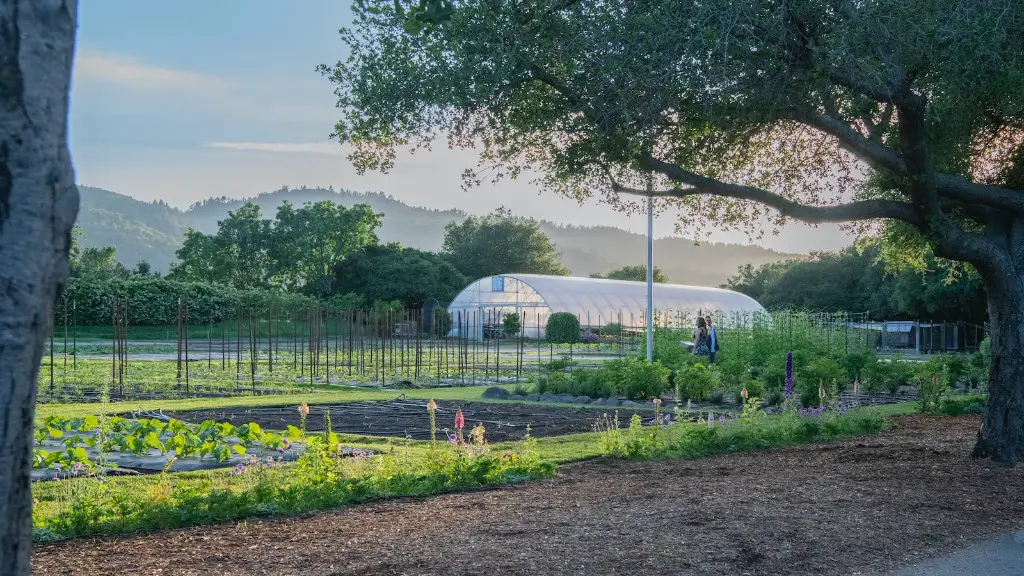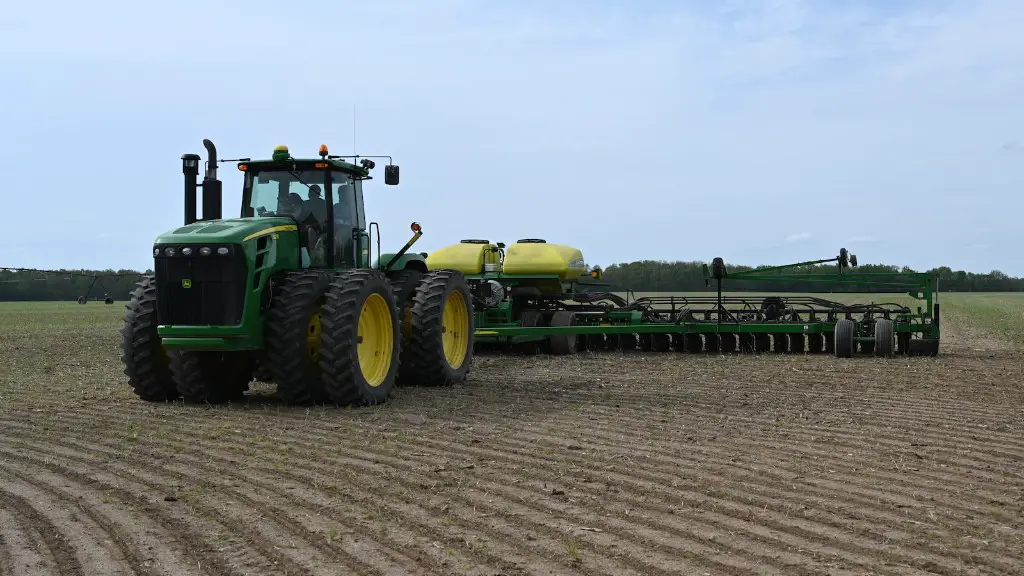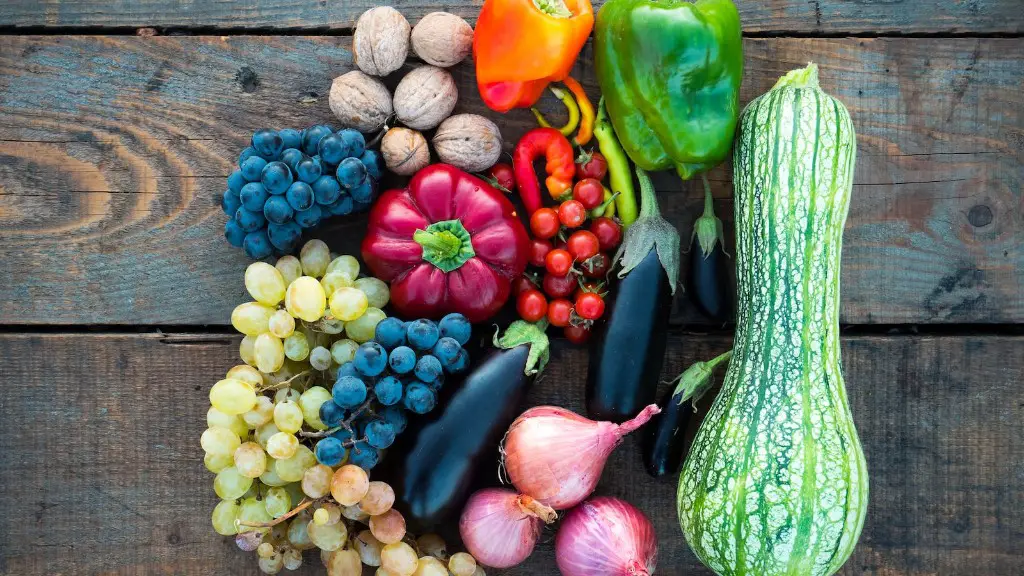Industrial agriculture is a type of agriculture that relies on industrial technological processes to increase the productivity of crops and livestock. This type of agriculture typically involves large-scale monoculture, heavy use of chemical fertilizers and pesticides, and intensive animal husbandry. Industrial agriculture has been controversial due to its environmental and social impacts.
There are many benefits of industrial agriculture, but some of the most notable ones include increased efficiency, productivity, and profitability. Industrial agriculture has also been credited with helping to feed the world’s growing population.
What are the benefits of agricultural industrialization?
Intensive farming is a highly efficient way to produce food, using less land and fewer resources than traditional methods. This type of agriculture can have a number of benefits, both for the farmers and for the wider population.
Intensive farming usually results in higher yields per acre, meaning that more food can be produced from a smaller area of land. This is good for landowners as it means they can make more money from their land, and it also helps to feed the growing population as demand for food increases.
Intensive farming can also be more environmentally sustainable than traditional methods, as it uses less water and energy and produces less pollution. This is important as we look for ways to reduce our impact on the planet and protect our resources for future generations.
The industrial agriculture system is not sustainable. It consumes fossil fuel, water, and topsoil at unsustainable rates and contributes to numerous forms of environmental degradation, including air and water pollution, soil depletion, diminishing biodiversity, and fish die-offs.
What is the purpose of industrial agriculture
Industrial agriculture is a type of farming that relies on synthetic chemical inputs to boost productivity and mechanization of manual processes. This approach to agriculture is designed to maximize food production. While industrial agriculture can be efficient in terms of food production, it can also have negative impacts on the environment and the health of those involved in the process.
Industrial agriculture is a type of farming that involves using large-scale production techniques to maximize profits. This type of agriculture typically relies on heavy use of chemicals and other inputs to boost yields. Some examples of industrial agriculture include CAFOs (concentrated animal feeding operations) and monoculture crops (single-crop production). While industrial agriculture can be profitable, it can also have negative environmental and social impacts.
What are 5 benefits of industrialization?
Industrialization has a number of benefits, chief among them being the availability of goods and the affordability of goods. Additionally, industrialization often leads to increased jobs and improved medical care. However, there are also a number of potential drawbacks, such as increased income disparity and potentially hazardous working conditions.
1. Agriculture is the main source of raw materials for industries.
2. It is important to international trade.
3. It plays a big role in a nation’s revenue.
4. It provides employment.
5. It’s crucial to a country’s development.
6. It can help heal the environment.
7. It goes hand-in-hand with war.
8. It can help alleviate poverty.
What’s one of the largest impacts of industrial agriculture?
Agricultural contaminants, including pesticides, nitrates, and phosphorus, have a significant impact on ground and surface water quality, affecting both urban and rural communities. The use of synthetic fertilizers can deplete soil health and require intensive use of fossil fuels to produce. These factors underscore the importance of using sustainable agricultural practices to protect our water resources.
It is estimated that 30-40% of food produced in the US every year goes to waste. This is a staggering amount, especially when considering that there are people all over the world who are food insecure. Industrial agriculture is lauded as the most efficient way to produce food for a growing global population, but it is clear that it is not living up to its promise. Not only is an enormous amount of food being wasted, but the way in which it is produced is causing immense environmental damage. It is time for a change.
What were the goals and effects of industrial agriculture
The primary goal of an industrial farm is to maximize profits by producing as much food as possible with the least amount of overhead costs (including labor). Generally, industrial farming involves producing a single crop, such as corn or soybeans, using intensive methods that provide maximum yields for minimum cost.
Industrial agriculture is currently the dominant food production system in the United States. It’s characterized by large-scale monoculture, heavy use of chemical fertilizers and pesticides, and meat production in CAFOs (confined animal feeding operations).
This system has been incredibly successful in increasing food production, but it has also come at a great cost to the environment and to the health of those who consume the food that is produced.
The use of large-scale monoculture has contributed to the loss of biodiversity, as well as the depletion of the soil. The heavy use of chemicals has polluted our water and air, and has been linked to health problems in both humans and animals.
The good news is that there are alternatives to this system, and more and more people are beginning to embrace them. Organic agriculture, for example, is a more sustainable way to produce food, and it is becoming more popular all the time.
What is the impact of industrial agriculture?
Agricultural pollution is a serious problem that needs to be addressed. Not only does it pollute water with pesticides and sediments, but it also depletes soil quality. This results in less productive land and can lead to environmental problems.
Industrial agriculture is the large-scale, intensive production of crops and animals, often involving chemical fertilizers on crops or the routine, harmful use of antibiotics in animals (as a way to compensate for filthy conditions, even when the animals are not sick).
Is industrial agriculture sustainable
Sustainable agriculture, on the other hand, is a system of farming that doesn’t deplete the earth’s resources. It relies on practices like crop rotation, cover crops and intercropping to maintain soil health, and uses less water and energy overall. Sustainable agriculture is a more environmentally responsible way to produce the food we need.
The industrial revolution was a time of great change for the way goods were manufactured. New manufacturing methods, improved water power, and mass production of goods led to more production and better efficiency. This in turn led to lower prices, more items, higher incomes, and people moving from the country to the city. The industrial revolution had a great impact on the world and changed the way we live today.
What are 3 positives of industrialization?
The Industrial Revolution was a time when machines began to replace hand-made products. This shift led to increased production and efficiency, lower prices, more goods, improved wages, and migration from rural areas to urban areas.
Among the many positive effects of the Industrial Revolution was an increase in wealth, the production of goods, and the standard of living. People had access to healthier diets, better housing, and cheaper goods. In addition, education increased during the Industrial Revolution.
Conclusion
-The main benefit of industrial agriculture is that it increases food production. This is done by using large scale farming methods and mechanization.
-Another benefit is that it creates jobs in the agricultural industry.
-It can also help to lower food prices by increasing the efficiency of production.
Industrial agriculture can have many benefits, including increased production, economic growth, and improved food security. It can also help to reduce poverty and hunger, and improve nutrition and health. However, industrial agriculture can also have negative impacts, such as environmental degradation, loss of biodiversity, and negative social and economic impacts on small-scale farmers.





